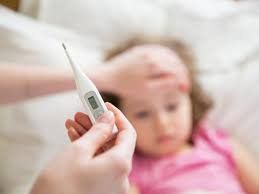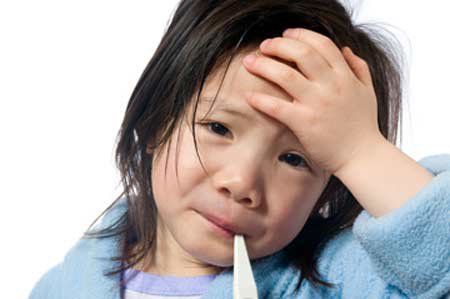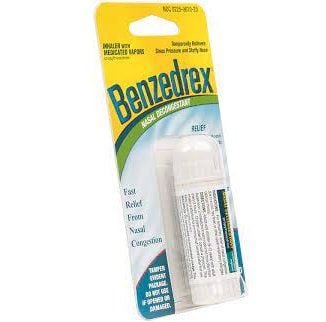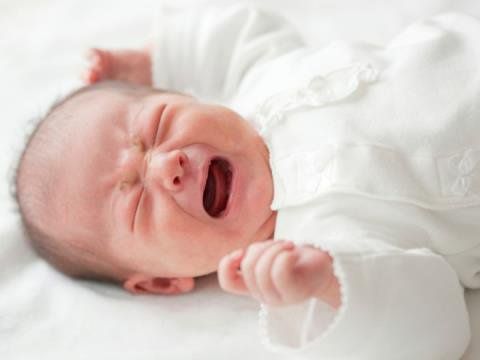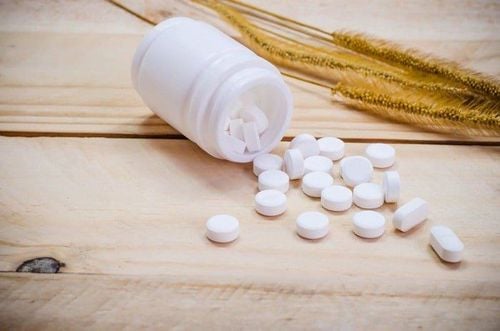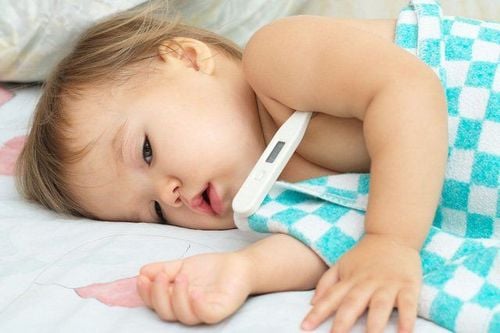This is an automatically translated article.
Posted by Doctor CKII Pham Thi Khuong- Pediatric Center - Vinmec Times City International HospitalFever is a beneficial response of the body's defense system to invading agents, called pyrogens. Fever helps the body destroy pathogens faster and inhibits the growth of pathogens, usually viruses and bacteria. When children show signs of malaria, it is necessary to take timely measures to prevent complications.
1. Children with malaria should be given water? Why?
We know fever is determined when a rectal temperature is above 380C or 37.5C when measured in the armpit. Body temperature measured at sites other than the body is usually lower than when measured inside the body (oral or rectal). Low temperature fever is usually considered when the temperature is below 39oC.
Fever is a beneficial response of the body's defense system to invading agents, called pyrogens. Fever helps the body destroy pathogens faster and inhibits the growth of pathogens, usually viruses and bacteria. The hypothalamus raises body temperature as a way to fight infection. However, many medical conditions other than infections cause fever.
2. Why does the child have a fever?
There are many common causes of fever in children:
Bacterial infections such as scarlet fever or, more rarely, rheumatic fever, are associated with strep throat; urinary tract infections ... Viral infections such as influenza viruses ; Due to the drug being used
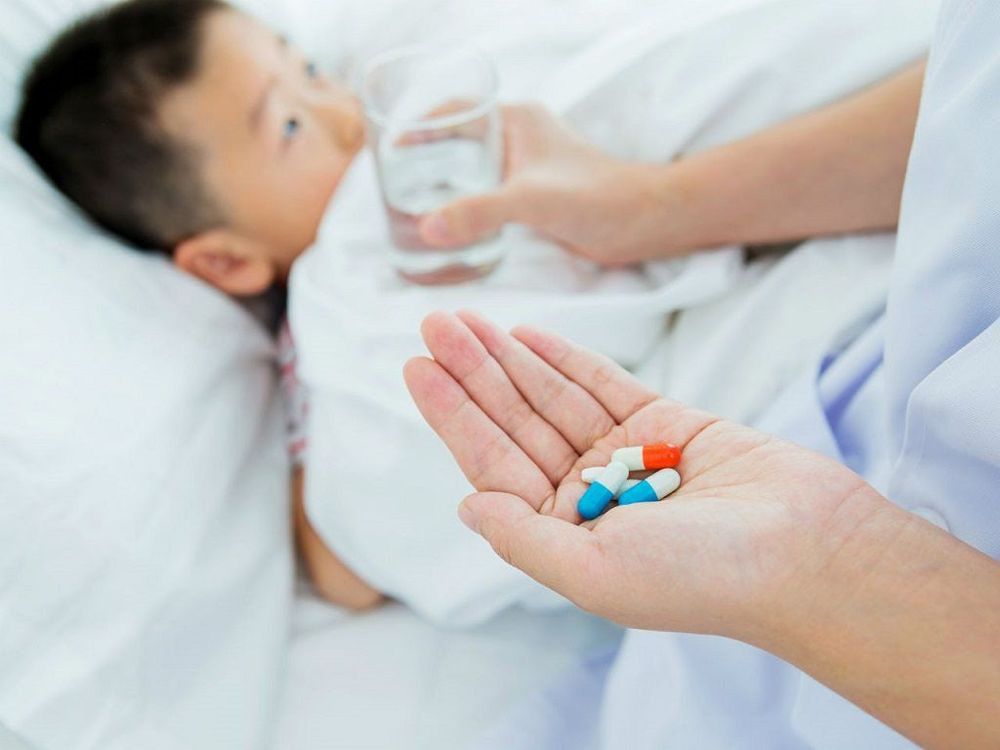
Một số loại thuốc có thể gây tình trạng sốt ở trẻ nhỏ
Factors to heat exposure: Heatstroke, warmth, heating Allergies; Rarer are inflammatory diseases such as juvenile arthritis.
3. Why do children have malaria?
There are causes of chills, which are vasomotor disorders due to high fever or urinary tract infections or malaria-causing parasites.
Children with malaria, shivering causes vasoconstriction. Children shiver, hands and feet are cold. But inside the body is having a very high fever, which can reach 40 degrees Celsius and if it is not lowered in time, it will damage nerves and organs. Thus, because the fever is too high, it constricts the peripheral vessels, leading to the skin disease feeling cold. When a child has a fever and shivers, the mother needs to understand that the most important thing for the child at this time is to have the fever properly.
Children with malarial tremors due to malaria is a disease caused by the malaria parasite Plasmodium. The disease is transmitted by blood. Children get malaria through 3 ways, by blood transfusion, by placental transmission and by Anophen mosquito.
If the case of malaria is excluded, the child's condition with malaria is usually due to a cold or a certain bacterial or viral infection. Often, symptoms caused by malaria and chills in other diseases are difficult to distinguish without expertise. Therefore, when a child has a fever, parents should immediately consult a pediatrician for appropriate treatment before sending the child to the hospital to avoid convulsions or complications due to late treatment. We should never give water to a child with malaria without finding the cause, but should treat it according to the cause for the fastest effect.
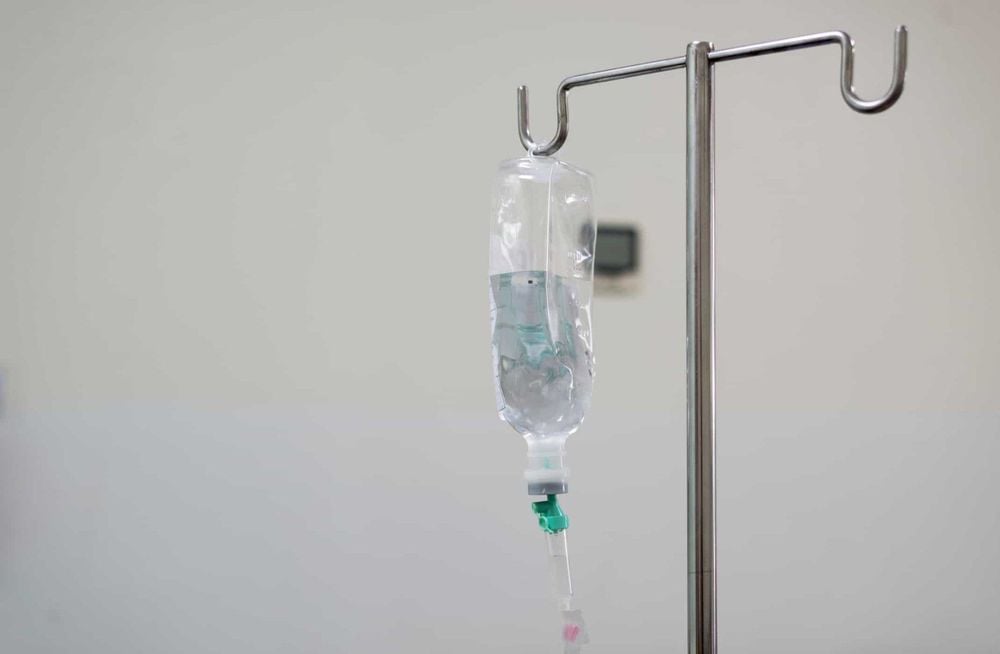
Tuyệt đối không được truyền nước khi trẻ bị sốt rét chưa rõ nguyên nhân
In pediatric clinical practice, even pediatric patients and physicians are living in tropical and subtropical regions, but physicians are not always able to immediately detect, diagnose and find the cause. cause of fever in pediatric patients. Infectious pediatricians had to visit to find the cause....
Fever is a major concern for parents when bringing their child to the emergency department and to the clinic's clinic. medical.
Fever in itself is not life threatening unless the fever is very high and persists for several days such as a temperature greater than 41.6 C on rectal examination. Risk factors for anxiety about fever are present, including fever with malaise, in children under 2 years of age, or persistent relapsing fever, lasting for more than 1 week. Fever may indicate the presence of serious illness, but often fever is caused by specific infections, most of which are not serious.
4. How to treat and care for children with malaria
4.1. How to treat children with malaria When a child has a fever with malaria, the child should be taken to the hospital immediately for examination, diagnosis of the cause and timely treatment of malaria virus caused by malaria parasites or other bacterial infections. Late treatment, many serious complications, or death can occur.
4.2 How to take care of a child with malaria Take the child to the hospital for examination as quickly as possible when seeing that the child has malaria and shivering and immediately the mother should pay attention to reduce the child's fever by:
Remove clothes for the baby to wear as much as possible. the more airy the better. Absolutely do not warm, blanket will make the situation worse. If the child has a fever from 39 degrees Celsius, apply the compress by: Mixing warm water, using 5 towels soaked in warm water in the area with large veins: Wipe 2 armpits and 2 groins, 1 towel wipe the whole body. Note, always maintain a warm towel temperature, do not let the towel get cold and do not use cold water, which will cause heat shock to the child.
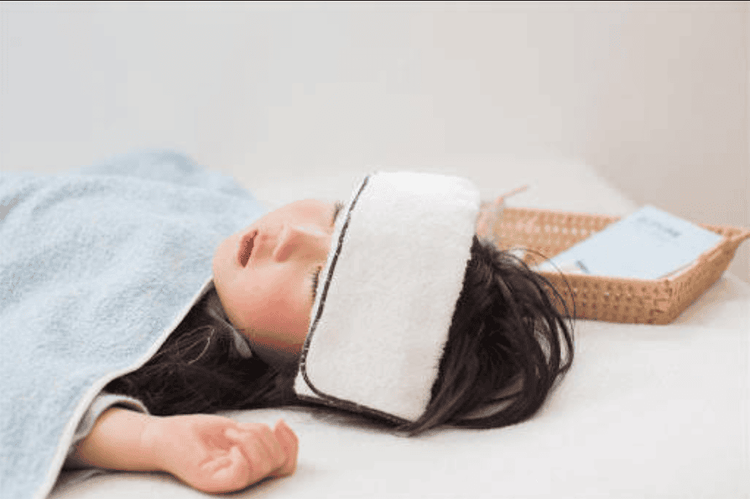
Cha mẹ có thể chườm ấm khi trẻ sốt cao từ 39 độ C
Give the child fever-reducing medicine: Pay attention to the appropriate dose for the child's weight. Open the window, fan or air conditioner to help the air in the room become airy and cool to help the child lower the fever quickly. In case of a child having a convulsion: Place the child on his or her side for easy breathing and monitor the convulsion. If the seizure lasts longer than 5 minutes, call 911. Never press the baby or put anything in the baby's mouth during a convulsion. Rehydration for children: Children with fever will lose water and electrolytes in the body. You need to breastfeed your baby more if the baby is still breastfed, or add water, juice or oresol if the baby is older. The pediatric department at Vinmec International General Hospital is the address for receiving and examining diseases that infants and young children are susceptible to: viral fever, bacterial fever, otitis media, pneumonia in children. ,... With modern equipment, sterile space, minimizing the impact as well as the risk of disease spread. Along with that is the dedication from the doctors with professional experience with pediatric patients, making the examination no longer a concern of the parents.
Customers can directly go to Vinmec Health system nationwide to visit or contact the hotline HERE for support.
SEE MORE
Causes of fever in children Instructions on how to bathe children with high fever at home Fever convulsion in young children and notes parents need to know for timely handling




